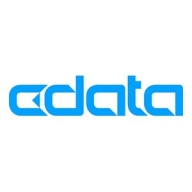

MongoDB Atlas and CData Arc compete in the tech domain, each catering to different operational needs. While MongoDB Atlas is preferred for its scalable cloud-based database solutions and strong customer support, CData Arc may offer more value in data integration and connectivity features, albeit at a potentially higher cost.
Features: MongoDB Atlas features automated backups, performance metrics, and global data distribution, focusing on database management. CData Arc provides robust data integration, connectivity solutions, and extensive data transformation features, emphasizing integration capabilities.
Ease of Deployment and Customer Service: MongoDB Atlas presents a streamlined deployment process with minimal downtime and responsive support. CData Arc's deployment requires more technical resources due to its extensive integration options, and while it offers customer service, MongoDB Atlas is noted for its accessibility.
Pricing and ROI: MongoDB Atlas offers cost-effective scalability with pay-as-you-go pricing, potentially lower initial setup costs, and high ROI through efficient resource management. CData Arc involves higher initial investments but delivers substantial ROI through enhanced data handling capabilities, with its value lying in powerful integration solutions.

CData Arc offers seamless data integration designed for enterprises looking to automate and streamline their business processes efficiently.
CData Arc focuses on providing robust tools to support data transformation and connectivity across different platforms. It facilitates EDI, secure file transfers, and business process automation. Users value its comprehensive integration capabilities, though there's room for improvement in user experience design, which could enhance productivity.
What are the key features of CData Arc?CData Arc is applicable across industries like logistics, manufacturing, and retail, offering tailored applications that cater to EDI transactions and data synchronization. Its ability to integrate with ERP systems makes it a choice for businesses looking to enhance supply chain operations.
MongoDB Atlas stands out with its schemaless architecture, scalability, and user-friendly design. It simplifies data management with automatic scaling and seamless integration, providing dynamic solutions for diverse industries.
MongoDB Atlas offers a cloud-based platform valued for its seamless integration capabilities and high-performance data visualization. It features advanced security options such as encryption and role-based access control alongside flexible data storage and efficient indexing. Users benefit from its robust API support and the ability to manage the platform without an extensive setup process. Feedback suggests improvements are needed in usability, query performance, security options, and third-party tool compatibility. While pricing and support services could be more economical, there is a demand for enhanced real-time monitoring and comprehensive dashboards, as well as advanced containerization and scalability options supporting complex database structures.
What are the key features of MongoDB Atlas?
What benefits should you consider in a solution like MongoDB Atlas?
In healthcare and finance, MongoDB Atlas manages payment transactions and facilitates real-time analytics, powering SaaS solutions and storing large volumes of user data. It enhances scalability, performance, and security for cloud hosting, IoT integrations, and Node.js environments, widely favored for its flexibility and capability to support microservices.
We monitor all Managed File Transfer (MFT) reviews to prevent fraudulent reviews and keep review quality high. We do not post reviews by company employees or direct competitors. We validate each review for authenticity via cross-reference with LinkedIn, and personal follow-up with the reviewer when necessary.